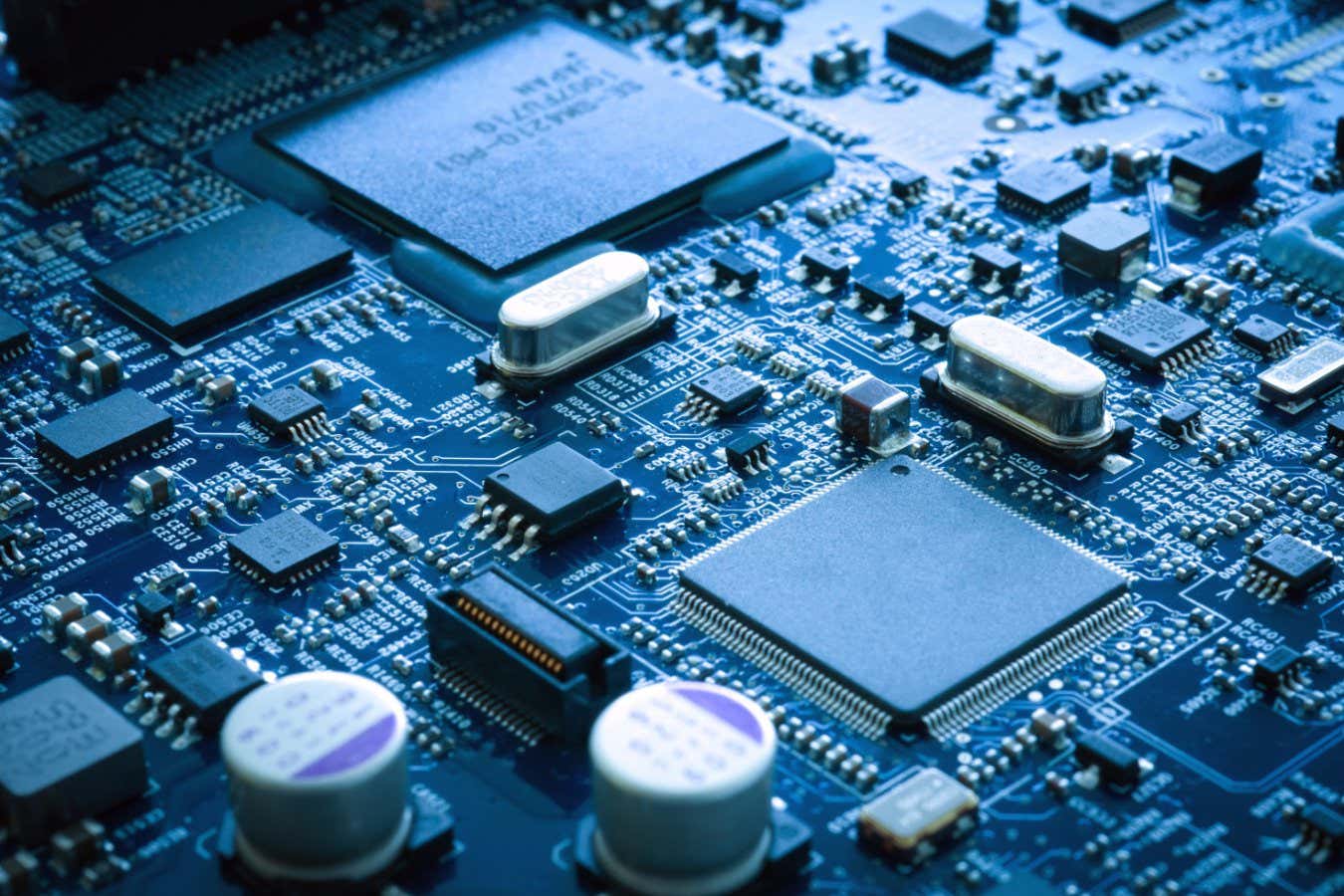A record-breaking superatomic semiconductor material allows particles to traverse it between 100 and 1000 times faster than electrons pass through a silicon chip
By Matthew Sparkes
26 October 2023
Conventional semiconductor circuit boards are made using silicon
aPhoenix photographer/Shutterstock
A “superatomic” material has become the fastest semiconductor known and could lead to computer chips that are hundreds or thousands of times speedier than anything available today.
The silicon semiconductors used in transistors in computer chips rely on the flow of electrons to transmit data, but these particles tend to scatter wildly, wasting energy in heat and slowing the time taken for data to get from A to B.
Now, Milan Delor at Columbia University in New York and his colleagues have discovered a faster and more efficient semiconductor in a material with the chemical formula Re6Se8Cl2. It is made of rhenium, selenium and chlorine, but is a superatomic material, in which atoms form clusters yet still act like the original elements in some ways.
Advertisement
Read more
Room-temperature superconductors: Here's everything you need to know
Particles called excitons actually move through this material more slowly than electrons do through silicon, but, crucially, they move in arrow-straight lines, so they cover similar distances far more quickly.
If a transistor that uses excitons rather than electrons could be made with this new material, then they would make it from one side of the transistor to the other without scattering, which would allow them to travel from A to B somewhere between 100 and 1000 times faster than electrons in a silicon chip.
